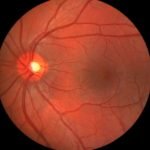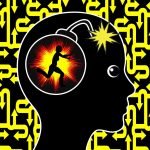Intention in the Practice of Meditation
Adam Prinsen, ND
There are incredible benefits to learning the skill of relaxation. With regular practice, we as human beings can learn to follow the rhythm of the breath and find the mind becoming calm, peaceful and clear. In this state of relaxed alertness, we may find a great deal of healing, physically, emotionally and spiritually. The turbulence that characterizes modern society has made it very difficult for us to feel the natural joy that comes from a mind grounded in the heart and body.
However, as we continue to meditate and practice relaxation exercises, we may not necessarily be getting the benefits we had hoped for. Life may seem more turbulent than ever before. There may be higher highs and lower lows. Why is this the case? How do the intentions and motivations brought to meditation practice affect the results?
To answer these questions, we must understand the mechanics of the mind/body phenomenon.
The Mind/Body Phenomenon
The body is an incredible instrument that has the ability to pick up information from the environment via the five senses. Incoming sensory information travels along nerves to the brain, which interprets these signals; this information is perceived by the mind. A part of the mind is constantly aware of sensory information coming from the body. Even when we are busily going about our day, disconnected from our body, a deeper aspect of the mind (subconscious) is aware. The mind judges sensory input as good, bad or neutral. If the input is judged as “good,” we feel a pleasant physical sensation throughout the body. We feel elated and wonderful. If a sensory input is judged as “bad,” we feel a current of sensation in the body that is perceived as unpleasant. We don’t like feeling this way and we want it to go away. What happens next is very important: When we subconsciously react like this, the unpleasant sensations and emotions are amplified, and we react more strongly again. In this way, we keep amplifying our mind/body state and torturing ourselves. It is as if a small fire has been started by an unpleasant event and we are pouring gasoline on the fire without realizing it. This is called “stress.” Stress is a resistance to the present moment … or a desire for things to be different than they are. It causes and contributes to many health problems and much of the dissatisfaction in people’s lives.
It’s simple: When we feel stress, we want the experience to go away; and when we feel pleasure, we want it to last. Most people start to meditate or practice mind/body techniques to get rid of stress and feel good.
The Problem: Sensitivity
When people practice mind/body techniques such as meditation, they become much more sensitive to and aware of sensations in the body. As a result, their reaction to stress usually intensifies, creating more pain and suffering than before. A great misunderstanding causes this natural and very common phenomenon.
The problem is not the emotion or sensation of stress in the body itself. This is something we cannot control. Emotions and body sensations are natural phenomena. The problem is the reaction we have to these sensations and emotions. The problem is that we want to push away the “bad” and have more of the “good” in life. We all find ourselves in this predicament; it is part of our subconscious makeup as human beings. Often, the reason we meditate and practice mind/body techniques is to gain control of the situation to have a more pleasant experience of life. This desire often leads to the expectation that meditation will make life more pleasant and peaceful. We try to meditate our problems away but, in doing so, the problems may actually become intensified.
The Solution
Wise teachers of the past have said that the highest spiritual practice is self-observation. What does it mean to observe one’s self?
This is a very important question, because it contains the secret to ending the confusion and stress in life. Going back to the explanation of the mind/body phenomenon: Sensory input (from our external life) is interpreted by the mind and transmitted as emotions and body sensations. This happens continuously. The one factor that we can influence in the mind/body phenomenon is our reaction to these emotions and sensations. This is where our freedom and healing lie.
Self-observation means to observe the mind/body phenomenon and the sensations/emotions being generated in every moment. When we do this, we begin accepting the level of experience where the subconscious mind is expressing its desires and aversions.
The laws of nature are such that stress will always be a part of life. We will always experience sensations and emotions that are pleasant as well as unpleasant. If we practice meditation and relaxation techniques while keeping this in mind, our whole life has the potential for profound change. If we forget about this truth, believing that we can use meditation to experience life as consistently pleasant, we may find ourselves depressed, frustrated and disillusioned. “This isn’t working for me” is something we will hear from our patients and perhaps from ourselves. We may attend countless yoga classes and meditation retreats, but without proper perspective on what we are trying to do, nothing will change. Having said this, change is something that takes time, and even if we are practicing correctly, it may take years to uproot very deeply conditioned reaction patterns.
Meditation Intentions and Motivations
Is your or your patients’ motivation for using meditation or relaxation techniques to feel good, or is it to develop wisdom? Wanting to feel good is a natural desire. However, it is not realistic to want it without the “bad.” This is not in line with the laws of nature and, therefore, is not a wise approach to life.
“Wisdom is the ability, developed through experience, insight and reflection, to discern truth and exercise good judgment. Wisdom is sometimes conceptualized as an especially well developed form of common sense.” (Wikipedia)
The healing process brings us into harmony with nature. This means that to heal, we must develop the knowledge of the way things truly are. This allows us to align with the ways things are instead of fighting against nature. It is the experiential knowledge of the mind/body phenomenon working within us that will lead to the transformation of the mind and the stress response. This transformation will happen naturally if we align ourselves with the laws of nature and practice accepting the ever-changing nature of our experience. This takes a commitment to “being with” the ups and downs of life, which often push us to the edge of our ability to remain balanced. When we consciously enter into this fire of transformation commonly called “life,” our mental reactions to stress are slowly burned away and we are left with a heart/mind that is open, calm, clear and wise in the midst of the chaos around us.
Meditation practice connects us more deeply with the experience of the life within ourselves. This leads to what is known as experiential knowledge. Reading this article provides mental knowledge. Mental knowledge is useful but will not lead to the benefits of inner peace unless it is experienced deeply in the present moment. That is why we can read a book of wisdom and still be miserable. Meditation brings awareness to the currents of sensation in our body, which, when accepted unconditionally, can bring about incredible healing. Whether the experience is “good” or “bad,” we keep breathing, feeling and allowing the sensations and emotions to be just as they are.
The practice of meditation develops awareness and mental poise (or mental balance). Awareness without mental poise will not lead to inner peace. Mental poise on its own will not lead to inner peace either, because without awareness of the subtle sensations of the body, we cannot feel our reactions to stress. Someone like this is detached and not completely present. It is the awareness of the basic sensation in one’s body combined with mental balance that will lead to a deep detoxification of our mental and emotional reaction patterns. When these reaction patterns are burned up, we feel lighter, more peaceful and balanced within ourselves. Our mind is transformed through awareness and mental poise.
Effects of Meditation
Because feelings are constantly changing, we cannot rely on how we feel in any particular moment to determine the effects of meditation. We know we are getting benefit from our practice if our reactions to the experiences of life are becoming less intense. We are allowing the experiences to be as they are. There will be less of a need to push them away or hold onto them. It is the strengthening of one’s inner sense of balance and poise that comes with unconditional acceptance of the present moment.
This is a phenomenon often observed in the healing process of many patients. As with any deep healing, the symptom may actually still exist, but the person doesn’t react to it in the same way. As this mental reaction is cooled down, the symptom doesn’t seem as troubling and limiting as it once did. It may even disappear entirely. This is often observed when a patient is given a high-dose homeopathic remedy or some other treatment that accesses the deeper layers of mind and spirit.
In many cultures, the development of this wisdom and inner balance was seen as the deepest purpose of life itself. Someone who has lived through the sensational currents of life for many years, with the intention of growing through challenges and stress, was recognized as a valuable part of society. Elders, who have lived life with this intention, embody deep truths about a way of living that is practical and fulfilling. They teach younger generations a way to access direction and purpose so they too may learn how to attain wisdom and inner peace.
As NDs, I believe approaching life in this way is one of the greatest gifts we can give our patients. It is not something that necessarily needs to be explained verbally, but rather, it is something that is felt and passed on via the heart. If we live our life this way, we will be teaching through our simple presence and by our example. This is “Docere.”
 Adam Prinsen, ND graduated from CCNM in 2003. He presently practices in Peterborough, Ontario. He has completed the clinical training in mind/body medicine at Harvard University and the spiritual lifestyle program at the Kripalu Center for Yoga and Health. His deep interests lie in connecting with the natural world, homeopathy, plant energetics and meditation, and inspiring people to expand their perception of life. He has a passion for teaching and presently offers courses on mind/body medicine, whole-person detoxification (body, mind, spirit), ayurvedic medicine and naturopathic nutrition. His favorite pastime is canoeing in northern Ontario.
Adam Prinsen, ND graduated from CCNM in 2003. He presently practices in Peterborough, Ontario. He has completed the clinical training in mind/body medicine at Harvard University and the spiritual lifestyle program at the Kripalu Center for Yoga and Health. His deep interests lie in connecting with the natural world, homeopathy, plant energetics and meditation, and inspiring people to expand their perception of life. He has a passion for teaching and presently offers courses on mind/body medicine, whole-person detoxification (body, mind, spirit), ayurvedic medicine and naturopathic nutrition. His favorite pastime is canoeing in northern Ontario.










